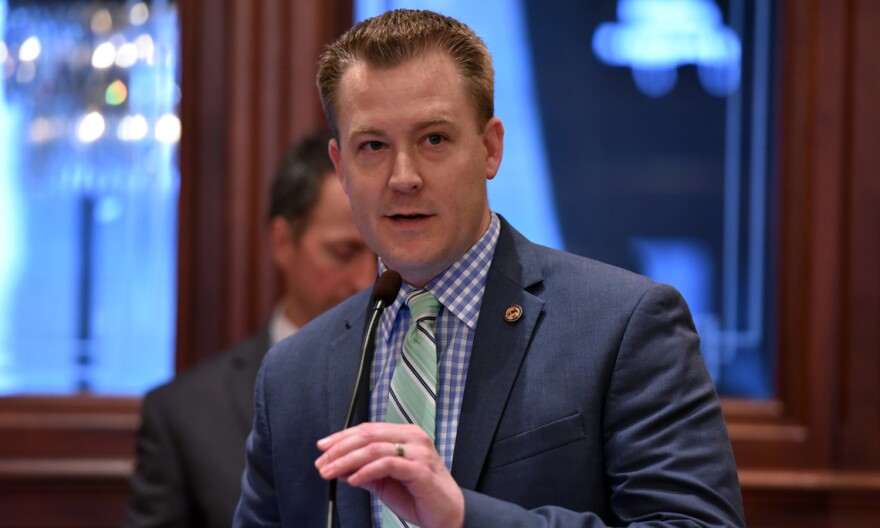There’s a civil war of sorts under way in Illinois – pitting Chicago against much of the rest of the state. This dispute is one of politics and policy and it has even led to a resolution being filed by a group of Republicans that would split Illinois into two separate states.
The extreme idea isn’t going anywhere. So far, it has yet to even receive a hearing. And one of those lawmakers who has signed on as a co-sponsor isn’t concerned about that.
“For me, it’s about trying to make a point and start discussion,” said C.D. Davidsmeyer, a representative from Jacksonville. “We have to have a conversation.”
“Right now, we have two Illinois’. We have the Chicago area and downstate Illinois. Some of these policies may not affect Chicago’s ability to compete. Chicago is a great international city. They compete against New York, L.A., San Francisco. My district is all or part of nine rural counties. We are competing against Missouri and other rural areas.”
Davidsmeyer points to policies like the new minimum wage law. It will eventually raise the wage to $15 an hour statewide. The representative feels that could be a problem for businesses in his district and elsewhere downstate.
“We have to be willing to compromise. We have to realize Illinois is a very diverse state,” he said. “The answers have to be different.”
One familiar line thrown around by downstate politicians is that Chicago takes tax money at the expense of the rest of Illinois. However, a study by the Paul Simon Public Policy Institute found just the opposite.
“It's probably a more explosive question in Illinois because we have such a long-standing, divisive debate about regionalism. And that debate takes the form of Chicago/Cook County versus Downstate. … And Downstate that resonates because we firmly believe that we're not getting our fair share,” said the Institute’s John Jackson in an interview with NPR Illinois’ Brian Mackey.
“Downstate does very well, actually,” Jackson says. “If you define fair share as getting a dollar back for every dollar sent to Springfield, the only two negative numbers are for Cook County and the five Suburban counties — the collar counties. The collar counties actually get $0.53 back for every dollar they pay in. Cook County doesn't break even, but they get $0.90 back, whereas Downstate does quite all right. Central Illinois gets $1.87 back and we in Southern Illinois do the best at $2.81 back for every dollar sent to Springfield. And that just debunks the legend that is out there, but a deeply ingrained part of our political culture.”
Indeed, Jackson says without public universities, community colleges and prisons — and the spending those institutions and their employees do in their communities — in southern Illinois there would be very little economic activity at all without the state.
Davidsmeyer doesn’t dispute that Chicago is an economic engine that benefits the entire state.
“I don’t want to lose Chicago. I just want to have a conversation that we have two different states here wrapped up under one policy. We have to find a way to allow downstate to thrive while Chicago has it’s more left-leaning policies that they can compete with other cities that have those same left-wing policies.”
So if he doesn’t think splitting the state in two is the right approach, why sign on to a resolution that calls for such action?
“You would not have called me if I was not signed on to that resolution,” Davidsmeyer said. “Everyone I have talked to, whether for or against it, understands where I am coming from. I’ve seen downstate able to work with Chicago and I think we can go back to that. It should be an adversarial thing. I think we can find a way to all work together.”






